An Employer of Record (EOR) is a service provider that legally employs workers on behalf of a company, handling payroll, benefits, tax compliance, and HR responsibilities. This model allows businesses to expand into new countries without the complexity and cost of establishing a local legal entity. Companies often choose EOR solutions to speed up international hiring, reduce compliance risks, and manage cross-border employment seamlessly. However, despite these clear advantages, some businesses remain cautious due to perceived risks such as compliance issues, data security, or cost concerns. The reality is that most of these worries stem from misconceptions or poor provider choices rather than the EOR model itself. In this article, we will explore the common concerns businesses have, why these risks are often misunderstood, and how EOR remains one of the safest and most practical solutions for global growth.
Common Concerns Businesses Have About EOR
Risk 1: Compliance and Legal Risks
One of the biggest concerns companies face when considering an Employer of Record (EOR) is compliance with local labor laws and tax regulations. Employers often worry that relying on an external partner could lead to employee misclassification or accidental breaches of labor codes, especially if the provider lacks expertise in a particular country. These risks are real when businesses attempt to navigate foreign markets on their own or partner with inexperienced vendors. However, a trusted EOR greatly reduces these challenges. By keeping up to date with changing labor laws, ensuring accurate employment contracts, and maintaining full compliance with tax and payroll regulations, an experienced EOR acts as a safeguard. Instead of being a liability, the right EOR provider becomes a compliance shield—helping businesses hire confidently and legally in any market while avoiding costly penalties and reputational damage.
Risk 2: Data Security and Confidentiality
The security of data is also another issue for enterprises who outsource employment services. Companies may also be worried about sensitive employee information like payroll records or personal identification being exposed or misused. This is even more crucial for cross-border businesses under stringent data protection laws (i.e., GDPR). While this is true, established EORs take security as seriously as any other aspect of business. They use state-of-the-art encryption, multi-stage authentication, and comply with global data privacy regulations to ensure information remains secure. Working with an experienced EOR organization also means that sensitive information is kept, and manipulated, in secure systems, vastly reducing the threat of cyber breaches or attack. On the contrary, when the appropriate EOR is involved, they act as an added layer of security giving a business the freedom to go global without having to compromise confidentiality and trust on the part of both employees and stakeholders.
Risk 3: Lack of Direct Control Over Employees
Some business founders and owners worry about engaging an EOR because they worry they will lose control of their workforce. The belief is that when employees are onboarded through an EOR, day-to-day management, communication and company culture are things that may be altered. In truth, EORs specialize in managing the administrative side (payroll, benefits, contracts, etc.) and leave all operational control with the client. That’s right: Businesses still manage performance, set company goals, and maintain their culture, directly. Rather than taking control away, EORs take the burden of time-consuming HR and compliance duties off organizations, giving them more time to dedicate toward managing and engaging their teams. By working with an EOR, businesses can secure not just efficiency and compliance but also total control over how their employees work, learn, and drive success.
Risk 4: Cost Misunderstandings
Another common resistance is the mistaken belief that Employer of Record services are inexplicably more costly than doing HR itself. Businesses may see EOR pricing as a “tax” more than anything that creates value for the future. Yet compared to the cost of establishing an overseas entity, hiring local legal consultants or dealing with fines because of unexpected compliance, EOR services are often a more cost-efficient solution. An EOR professional integrates these costs into a clear, predictable model. It prevents secret risks like penalties for non-compliance, hiring delays, or employee contract mismanagement. Contrary to inflating expense line items, EORs allow companies to expedite operations and resource savers that help businesses penetrate new markets faster. In the end, you’ll consistently get back more value from lower overhead, risk management, and easier global hiring than the cost of EOR services.
Benefits That Outweigh the Risks
Although EOR has potential risks, the benefits of such service outweigh the risks that come with it. One of the key advantages is global compliance without needing to establish expensive local entities, which saves businesses a lot of time and money. EORs also speed up hiring in overseas markets, allowing organizations to on-board quality talent faster and stay ahead. By overseeing payroll, benefits, and contracts, an EOR lightens the load for internal teams, allowing them to concentrate on their key functions. Furthermore, companies mitigate financial risks associated with penalties, misclassification, or failure to comply with local labor laws. Most importantly, it enables organizations to concentrate on growth and expansion, while HR and payroll get managed by the experts who know the global policies. This stooped balance of being compliant, efficient and flexible is EOR a strategic advantage in international business.
How to Choose the Right Employer of Record
Choosing the best Employer of Record (EOR) is extremely important as it removes risks and supports the smooth international expansion of your business. The first step should be to investigate a vendor’s history of compliance — comprehensive understanding of local labor laws, as well as a track record of compliance when it comes to global hiring, are essential indicators of a vendor’s reliability. Clear pricing is also crucial, an EOR a business can trust will want to show you a table of costs, with no small print, and no additional fees, so businesses know what is covered and where time and money can be saved. Ensuring data security in your HR provider is also essential, as they will have access to all your employee data, including payroll and contracts matters. Make sure EOR complies with international data-protection norms and applies to top-level security technology. Finally, look at client testimonials and industry reputation to see what other clients say about the quality of service and the trust it has in the marketplace. After methodically considering these factors, companies should be able to confidently select an EOR partner that brings compliance and peace of mind that will lead to long-term success.
Conclusion
While the idea of risks in using an Employer of Record (EOR) may concern some businesses, most of these challenges are theoretical and can be avoided by partnering with a reliable provider. Compliance worries, data security issues, or cost concerns often arise from misconceptions or poor vendor choices, not the EOR model itself. In reality, a trusted EOR simplifies global hiring, reduces legal and financial risks, and provides companies with a secure path to expand internationally. By managing payroll, benefits, and compliance with local laws, EORs allow organizations to focus on growth while ensuring employees are supported with professional HR services. Choosing the right EOR partner offers not just efficiency and speed, but also peace of mind. Ultimately, EOR is not a risk—it is a strategic solution for businesses aiming to grow confidently in today’s global market.





